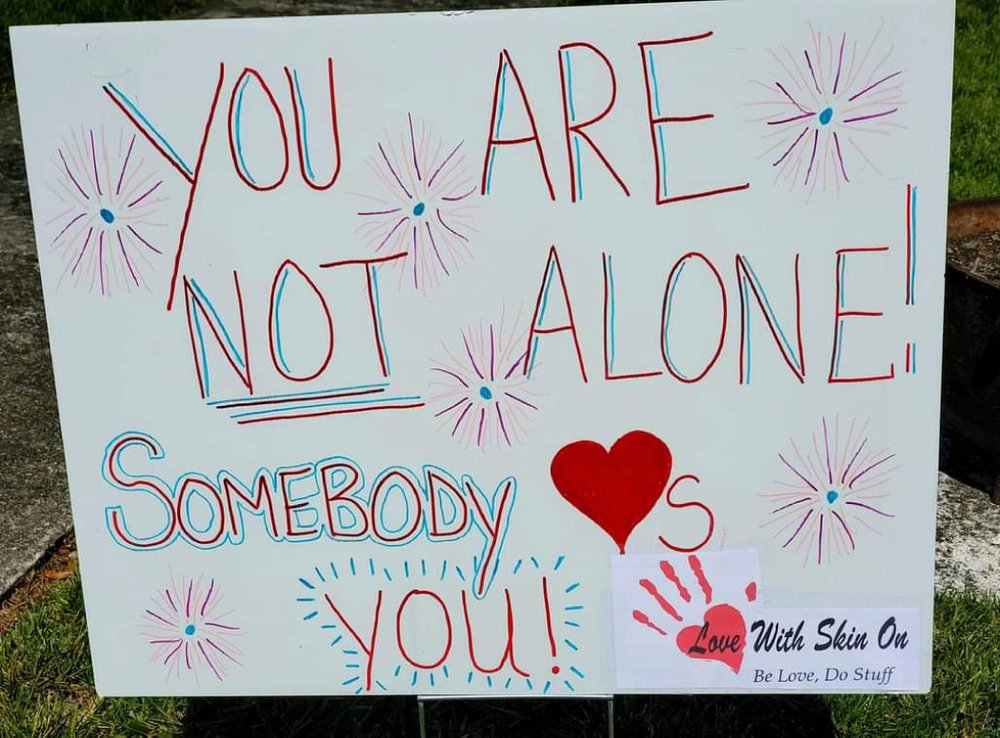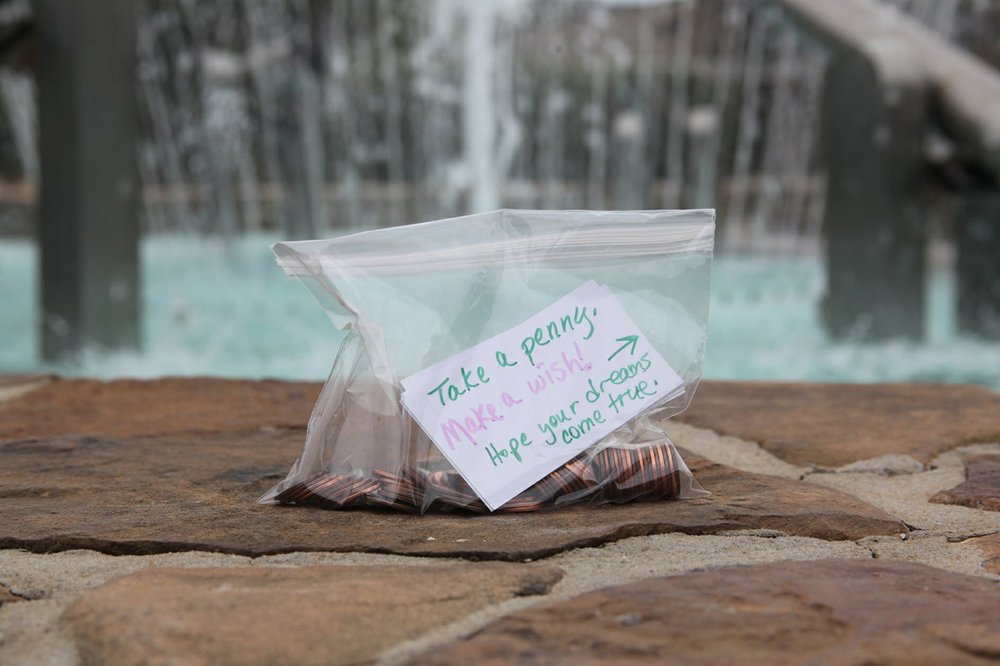Woman does 53 acts of service for her 53rd birthday

This year, Debra Ferrell couldn’t celebrate her birthday like she usually does. Instead, she decided to do 53 acts of kindness for her 53rd birthday.
Ferrell used social media to get ideas on how she can help others. Suggestions came from across the U.S., from small acts like encouraging a new student for his first day of online school to helping a family who just lost their four-year-old child. For that family in particular, Ferrell sent them wind chimes with a clapper that says, “When you hear the wind, I am with you.” She even recruited her teenage granddaughters to make signs in people’s front yards. The signs have captions like “Let your awesome out,” “You’re amazing” and “The world needs your light.”
Ferrell is no stranger to charitable acts. She started “Love With Skin On” on her birthday in 2014, an organization with the purpose to “share tangible acts of love and kindness.” Its motto is “Be Love. Do Stuff.” This year more than ever she knew she needed to help.
“It’s just a very painful time for people, our family included. And I mean, if one random act of a yard sign can make someone smile at this time, then … it’s more than worth it,” Ferrell told The Associated Press.
Operation Santa Claus gives presents to rural Alaskan communities

In some rural Alaskan communities, Santa doesn’t come in a sleigh with reindeer; he flies in helicopters from the Alaska National Guard. This year, with pandemic precautions, the soldiers from 1st Battalion, 207th Aviation Regiment upheld its 65-year tradition of delivering presents to families in Alaska.
Communities on the bank of the Yukon river are difficult to travel to, with small communities like Stevens Village which is home to 30 people. Thanks to Operation Santa Claus, gifts were delivered for almost everyone in the community. Though this year the operation didn’t showcase their usual grandeur, the villagers felt grateful the tradition still stood.
Sixty-five years ago, residents in the village of St. Mary’s experienced both a flood and a drought in one year. When faced with the choice to buy food or gifts for Christmas, they bought food. The National Guard decided to help and delivered supplies and gifts, creating a yearly tradition that is now sponsored by the Salvation Army and helps over 90 villages.
The Chief of Stevens Village told The Associated Press that having the National Guard reach out and still want to do Operation Santa Claus was reassuring. “It was great because just being so locked down and with travel, you know, so out of touch with the outside world,” he told The Associated Press. “Having someone that even reached out and wanted to do something like that was like, ‘Whoa, hey, awesome!’”
Random acts of kindness spread cheer despite pandemic

A weary woman in scrubs wrangled three crying small children into a grocery story. As she walked through the aisles, she noticed a little note with an inspiring message written on it. Smiling, she tucked the message in her pocket and continued shopping.
This was a product of Debbie McFarland’s Sparks of Kindness. The Facebook group is a community of people who do small acts of service to brighten people’s day. The Facebook page offers ideas like leaving an encouraging note and a tin of cookies on the running board of an ambulance or bagging up coins to leave near a fountain for free wishes.
People share their own experiences on the page as well. One user wrote, “I gave the guy in front of me $20 since his debit card didn’t go through. My emergency $20 came in handy … he hugged me, so I may get COVID, but he was very appreciative!”
McFarland started the group as a way to encourage more people to do random acts of kindness. Sparks of Kindness has over 5,000 members in over 40 countries. Since the pandemic began over 500 people have joined. “During this pandemic, I think people are starting to realize that … every person you come into contact with is fighting some kind of battle, whether it’s appointments or unmet expectations of others or health or bullying or whatever it is,” McFarland told The Associated Press. “Everyone’s facing a battle, and if you can get one tiny spark to ignite a hope within them, then it does something within them.”
Teacher trained and taught people to train guide dogs

Marybeth Hearn got her first puppy at 10 years old. It was then she first asked her parents if she could raise the puppy to be a guide dog. Skeptical at first, her parents let her try but doubted the prospects. As a determined 10-year-old, Hearn presented her idea at a Lions Club and raised $2,500. That summer she began her first bout of teaching guide dogs. Now at age 59, Hearn has raised 56 guide dogs.
Since 1992, she has also taught young students how to train and raise puppies to aid the blind. Over 170 dogs have come out of her program for various service posts, and puppies take 14 months to train. This process includes learning to walk on a leash, behave in public, and house-train. The puppies live with the students full-time, attending classes and field trips in order to be more socialized.
During the pandemic, Hearn and her students still trained puppies. They held socially distant play dates at the park and within this time graduated 12 new guide dogs.
Guide Dogs for the Blind CEO and president Christine Benninger praised Hearn for her work over the decades. “Blindness isolates you to begin with and now with COVID, we’re even more isolated,” Benninger told The Associated Press. “So just for one’s mental health or companionship, having a reason to get up and go somewhere every day, having a guide dog is life-saving for some of our clients.”




